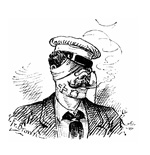
Briefly Reviewed: December 2024
Gender Ideology and Pastoral Practice: A Handbook for Catholic Clergy, Counselors, and Ministerial Leaders
By Theresa Farnan, Susan Selner-Wright, and Robert L. Fastiggi, Editors
Publisher: En Route Books
Pages: 468
Price: $29.95
Review Author: Francis Etheredge
This comprehensive book carries implicit advice to readers: the wise man has many counselors (cf. Prov. 15:22). Gender Ideology and Pastoral Practice features an ample range of essays by an ample number of authors, many of whom collaborate — consult, take advice, and listen — to understand this new ideology and how to respond to it. The book engages the reader right from the beginning, addressing ways of responding to confused youths with truth-in-love at the earliest opportunity, always with a view to keeping communication open.
Vulnerable young people and their families today are plunged into a maelstrom of novel ideas and word changes, leaving them overwhelmed and disconcerted. Some parents of confused youths suffer the sudden emotional blackmail of being told that if their child does not transition from what he or she is to a version of the opposite sex, he or she is likely to commit suicide. The reality, however, is that those who go through this disfiguring process are subject to an increased risk of suicide. In other words, neither the child nor the parents know that these outward changes will be a kind of approximation to the external appearance of the other sex or, in some unknown way, to no sex. If this seems an overly harsh way of stating what is happening to young people, it is nothing compared to the reality of living with these alterations.
Long-term medical problems result from unnecessary and irreversible loss of breasts, genitals, and fertility. Many sex-change cases involve a once-healthy body now requiring expensive, life-long medication and constant health care. In ordinary surgical settings, the pros and cons of an operation and its possible consequences are clearly articulated. What has emerged in the trans “care” milieu is that advocates of changing bodily appearance offer no account of the increasing evidence of multiple harms. In fact, a mass of evidence contradicts claims that puberty blockers and surgeries are reversible. Moreover, there is no consideration of the need for differentiated psychological diagnoses of multiple mental-health concerns in those confused about their identity as male or female. Counseling therapies, which do no harm, are even outlawed by an increasingly intolerant officialdom.
The idea that there is no fixed sex has become a multibillion-dollar program of the exploitation of youth. The authors’ assembled evidence makes clear to this reviewer that gender ideology is not a random accumulation of acts but a strategy to bring about a disordering domination of society. Indeed, if the founding documents of the United Nations are a benchmark for how society once recognized the real rights of peoples, vulnerable or otherwise, then we are already over the proverbial cliff. Those who lost the attempt to redefine human beings at the UN’s World Conference on Women in Beijing in 1995, and who had to accept the definition of men as biological men, and women as biological women, seem to be the architects of this new chaos, this new anti-population agenda advanced at any human cost.
Gender Ideology and Pastoral Practice returns readers to the sound thinking of evidence-based biology, reasoned philosophy, and an understanding of both ancient and modern Catholic theology of the whole person, man or woman, as a “person-gift.” Its contributors recommend these same tools as the antidote to the poison presented to our young people, their parents, and society as a whole. They address the very concrete harm that goes undocumented by activists who advocate affirmation of gender “transition.” Most important in a handbook, readers enjoy an extensive and nuanced discussion of how to address and help, in a pastorally sensitive way, the whole gamut of scenarios — from parents’ first discovery that their child is being manipulated via a new and disordering language (with entire families regrettably falling for the lie that a man can become a woman, or a woman can become a man) to those who must adapt to living with a profound disability after surrendering a previously healthy body. As suggested by the book’s title, much in it is specific to Catholic ministries. Even so, the essays are insightful and of use to a wider group than only those at work in pastoral care.
©2024 New Oxford Review. All Rights Reserved.
To submit a Letter to the Editor, click here: https://www.newoxfordreview.org/contact-us/letters-to-the-editor/
You May Also Enjoy
The time is ripe to reconsider the trajectory of our nation, and how Catholics fit into it. To that end, we asked thinkers of different stripes four questions.
The typical student in religion class today has never been required to think deeply about the more complicated or abstract concepts of Catholicism.

